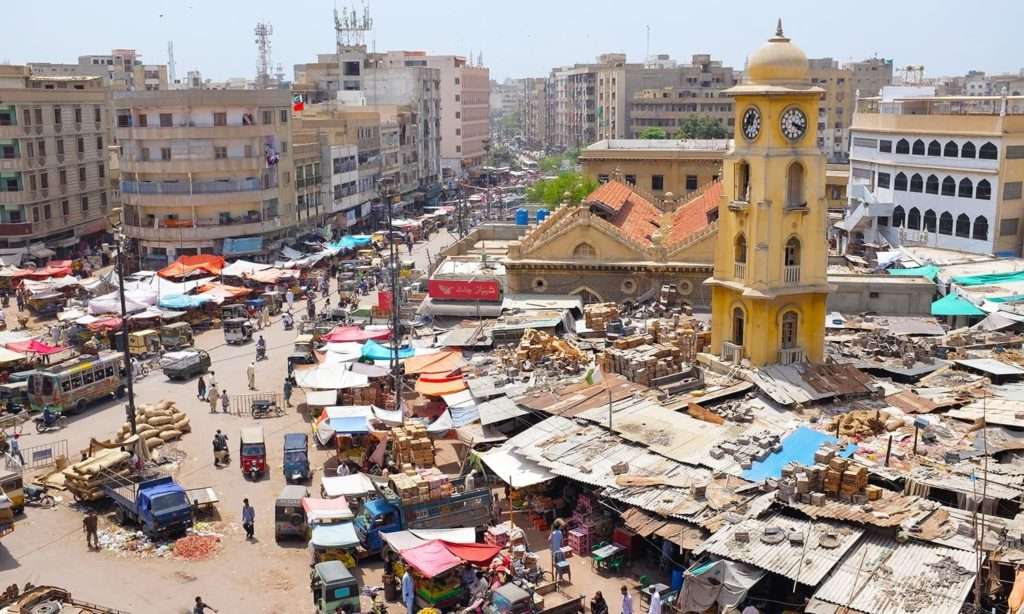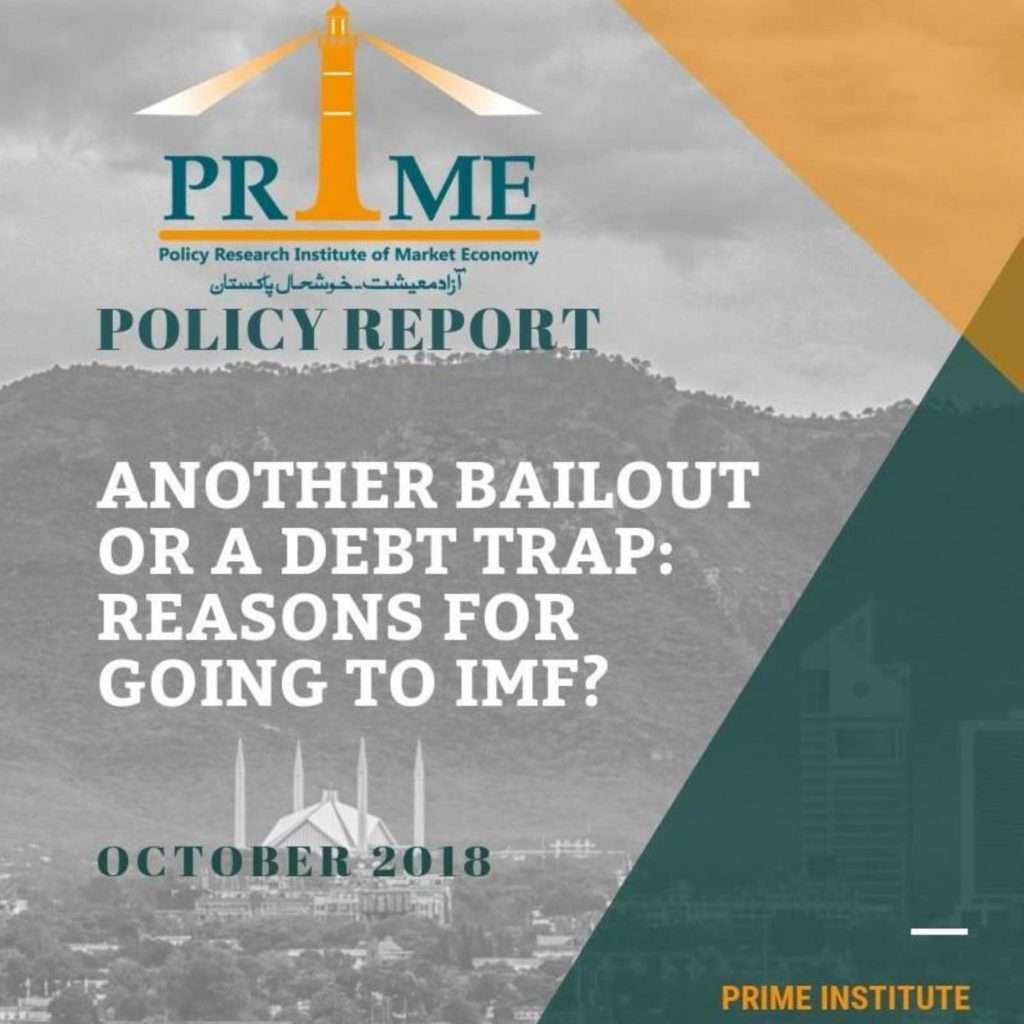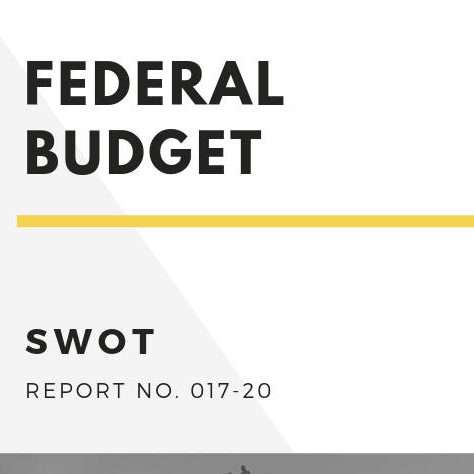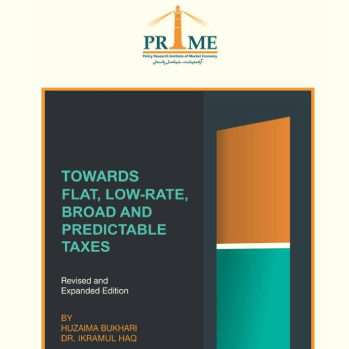After 5 years of PML-N Tenure and the first National Assembly to present a 6th Federal Budget since independence. PRIME looks at the strength and weaknesses and discusses the opportunities and threats that come with this Budge
Withholding Tax Regime: History, Consequences for Business and Implications for Policy
The contribution of Withholding Taxes indirect tax revenue has surpassed 75 percent, and it has brought in more than Rs. 860 billion to the government kitty in 2014-15. On the other hand, the number of tax return filers has gone down considerably from 1.8 million in 2006 to 0.85 million in 2014-15.
TOWARDS FLAT, LOW-RATE BROAD AND PREDICTABLE TAXES- REVISED AND EXPANDED EDITION
The study titled “Towards Broad, Flat, Low-rate and Predictable Taxes” by Huzaima Bukhari & Dr. Ikramul Haq analyses the structural and operational weaknesses of the existing tax system at the federal level and suggests alternate solutions in the areas that require fundamental reforms. This study argues that taxpayers have to deal with multiple tax agencies adding to their cost of doing business and the non-existence of tax-related benefits is the most neglected area of our discourse on reforms. It highlights the existing four-tier tax appellate system, how it has failed to deliver, and the alternate system which can be adopted.
Tax Reforms Under PTI Government: A Review
Tax Reforms Under PTI Government: A Review
The PTI government took charge about two and a half years ago. The current government inherited a system of taxation with multiple loopholes and institutional frictions. The PTI
government rightly advocated and later launched tax reforms as per their electoral agenda. The aim was to increase revenue generation through tax collection, to ultimately end dependence on external sources.
Karachi Transformation Plan 2020
Karachi Transformation Plan 2020

In 2014, government of Sindh requested the World Bank Group for its assistance in providing strategic advice regarding improving the livability and competitiveness of Karachi. This non-lending technical assistance was funded by the Korean Green Growth Trust. The World Bank Group committed to present a City Diagnostic and Transformation Strategy, which they hoped will enable the Government of Sindh to prepare an implementation of Karachi Strategic Development Plan 2020, prepared by the City District Government Karachi, in 2007. The World Bank Group presented its report in 2018.
In August 2018, a new federal government was sworn in. On November 28, 2018, President Dr. Arif Alvi presided over the introductory meeting of Karachi Transformation Committee (KTC), held at Governor’s House, Karachi. On 30 march 2019, while chairing a meeting of the committee at Karachi, Prime Minister Imran Khan announced Rs. 162 billion development package for Karachi.
In August 2020, Karachi received its heaviest rainfall in a single day in 53 years. The rain claimed more than 30 lives; electricity supply and cellular services in the city were disrupted for days. Against this backdrop, on 31 August 2020, the PM directed the government to finalize the Karachi Transformation Plan within the week.
Click Below to download the report:
Another Bailout or a Debt Trap: Reasons for Going to IMF?
Another Bailout or a Debt Trap: Reasons for Going to IMF?

Any government performs better when acting relatively autonomous in execution of daily affairs of national and local governance. Democracy ensures that the campaign promises made by leading political party are translated into active policy making that may carry favorable results for empowering the common citizen. This strengthens democracy and legitimizes governance institutions in the eyes of the voters. However, due to external account challenges, democratic or autocratic governments have been approaching International Financial Institutions (IFIs) for short and long-term assistance. In this perspective, International Monetary Fund (IMF) has been instrumental in disbursement of short-term loans to Pakistan several times over the past 50 years. These loans were provided to bailout the country to finance its high budget deficits and trade imbalances. Nonetheless, these short-term loans are accompanied with conditionalities that stifle the autonomy of the government.
Click below to read full report:
- « Previous Page
- 1
- …
- 3
- 4
- 5






